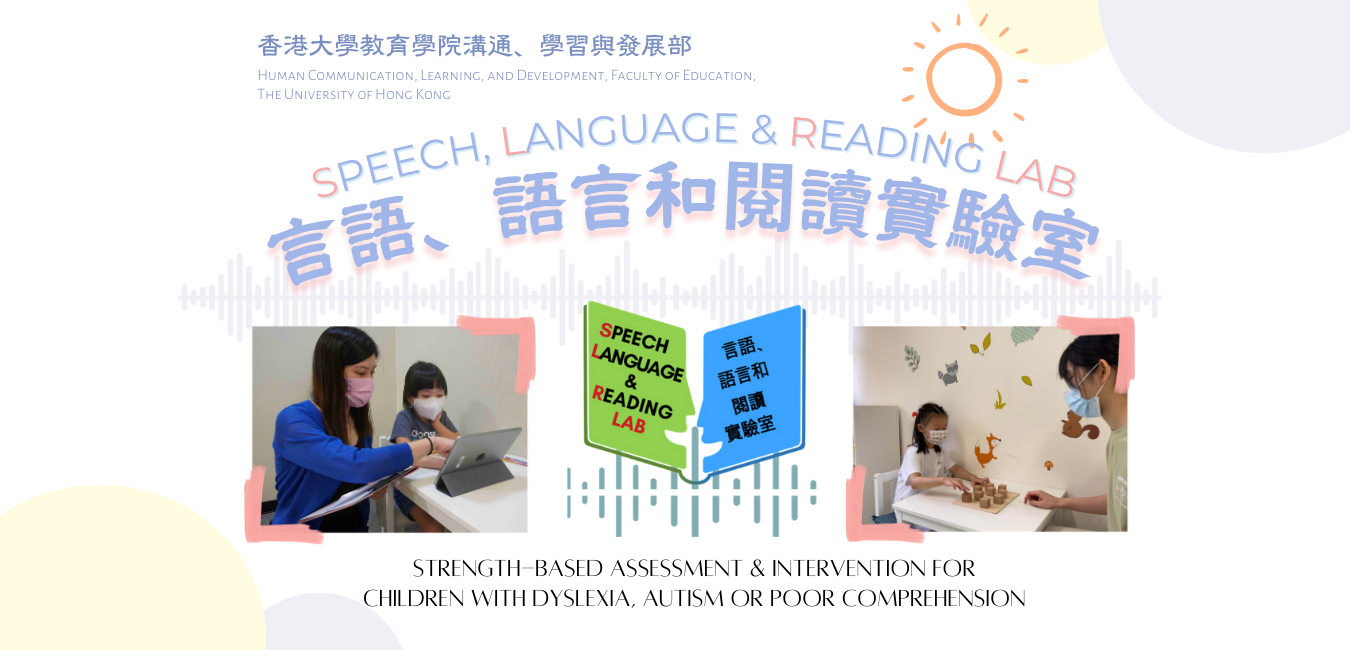Social-Emotional Development
非「童」凡「想」:如何培育未來之星
Raising a Furture-ready Child
- Published on 7 December 2022 -
擔心子女的將來?不知道子女未來會面對甚麼考驗?為幫助子女適應這瞬息萬變的世界,除學業成就外,更要着重他們的全人發展及家庭中的相處模式。因此,若想了解子女在不同方面的發展,以及引導他們的方法,歡迎參加香港大學言語、語言和閱讀實驗室的五年縱貫研究項目,當中的心理發展問卷調查或可解答您們的疑難,詳情請參看影片。
Are you worried about your child's future? Are you unsure about the challenges they might face? To better prepare your child for a rapidly-developing world, it is important to not only focus on their academic performance, but also their personal development and family interactions. To better understand your child's holistic development and guide your child more effectively, consider joining the Speech, Language and Reading Lab's five-year longitudinal study. Within our study, the psychological development questionnaire project may help address these concerns. For further details, please refer to the video.
I-DID 讀寫障礙評估與治療研究計劃詳情 (details for the I-DID assessment and intervention study): https://bit.ly/3J7TFxz
報名連結 (Sign-up form): https://forms.gle/MBW1MxVoaTWWfTMt7
Electroencephalogram (EEG) Experiments
【腦電實驗好學好玩!】:學童與家長訪談
【Fun and Inspiring EEG Experiments!】: An Interview with Students and Parents
- Published on 17 July 2021 -
Have you or your child participated in a neuroscientific experiment before? Ever wondered what it is like? In this video, some of our participants and their parents from our ongoing project "From Cognitive to Chinese Reading Comprehension ability: A 3-year longitudinal study on Chinese Children with Autism Spectrum Disorder." shared their experience – what did they learn from the experiment? How did they feel about receiving the assessment at our laboratory? Watch our video for a series of interviews with our participants to find out!
齊來認識腦電實驗 (EEG)!
Get to Know More about EEG Experiments!
- Published on 4 February 2021 -
Our lab is currently offering EEG experiments for school-age children who have participated in our ongoing research project! Want to know more about how we explore brain activity? Make sure you watch this video to learn about this neurocognitive technique and our experiment procedures!
